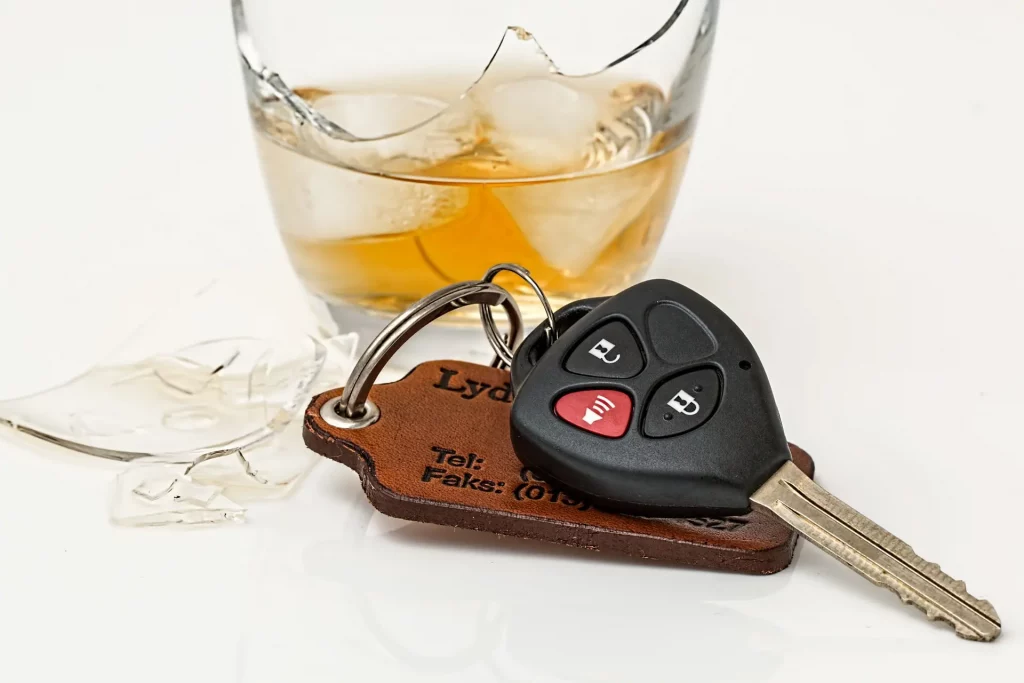New York City attracts millions of visitors annually, many of whom stay in hotels, Airbnb rentals, and other short-term accommodations throughout the five boroughs. While most stays are safe and uneventful, injuries can and do occur in these properties due to negligent maintenance, inadequate security, or dangerous conditions. Understanding your legal rights and the proper steps to take following an injury in a hotel or Airbnb can significantly impact your ability to recover compensation for your damages and medical expenses.
Legal Framework for Hotel and Short-Term Rental Injuries
Hotels and short-term rental properties owe guests a high duty of care under New York premises liability law. As invitees who are present on the property for the owner’s commercial benefit, guests are entitled to reasonably safe accommodations and protection from foreseeable hazards. This duty extends beyond simply providing clean rooms to encompass all aspects of the property that guests might reasonably access during their stay.
Property owners and operators must regularly inspect their premises for dangerous conditions, promptly repair identified hazards, and provide adequate warnings about risks that cannot be immediately corrected. This includes everything from structural issues and maintenance problems to security concerns and environmental hazards.
The specific legal obligations may vary depending on the type of accommodation and the nature of the property ownership. Traditional hotels typically have comprehensive insurance coverage and established procedures for handling guest injuries, while Airbnb properties may involve individual property owners with varying levels of insurance protection and legal sophistication.
Common Hazards in NYC Hotels and Rental Properties
Slip and fall accidents represent the most frequent type of injury in hotel and rental properties. These accidents often occur in bathrooms due to inadequate slip-resistant surfaces, missing grab bars, or poor drainage systems that allow water to accumulate on floors. Hotel lobbies, restaurants, and pool areas also present slip hazards from spilled liquids, inadequate cleaning, or worn flooring materials.
Stairway accidents are particularly common in older NYC buildings converted to short-term rentals. Many of these properties feature steep, narrow staircases with inadequate lighting, worn treads, or missing handrails. Building code violations are frequent in converted properties, creating significant liability for property owners when guests are injured.
Bed bugs and other pest infestations, while not always causing physical injury, can result in painful bites, allergic reactions, and significant property damage to guests’ belongings. NYC has particularly severe bed bug problems in some areas, and properties that fail to properly address infestations may be liable for resulting damages.
Inadequate security measures can lead to assaults, robberies, and other violent crimes against guests. Hotels and rental properties in certain NYC neighborhoods may be required to provide specific security measures based on local crime patterns and previous incidents on the property.
Hotel-Specific Liability Issues
Hotels typically have more resources and experience dealing with guest injuries than individual property owners, but they also have sophisticated legal teams and insurance adjusters working to minimize their liability. Major hotel chains often have established procedures for responding to guest injuries that are designed to limit their legal exposure while appearing helpful and accommodating.
Hotel elevators and escalators present unique injury risks due to the high volume of use and the mechanical complexity of these systems. Malfunctions can cause serious injuries, and hotels have strict maintenance obligations to ensure these systems operate safely.
Swimming pools and fitness facilities in hotels create additional liability exposures. These amenities must comply with specific safety regulations and require regular maintenance and supervision. Inadequate lifeguarding, poorly maintained equipment, or dangerous pool conditions can result in serious injuries or drowning incidents.
Room maintenance issues including faulty electrical systems, plumbing problems, or structural defects can cause injuries ranging from electrical shock to carbon monoxide poisoning. Hotels have ongoing responsibilities to inspect and maintain guest rooms to prevent these hazards.
Airbnb and Short-Term Rental Complications
Airbnb and other short-term rental platforms create more complex liability situations because they involve individual property owners who may not have commercial insurance coverage or experience handling guest injuries. The platforms themselves typically disclaim responsibility for injuries, leaving guests to pursue claims against individual property owners.
Many NYC Airbnb properties operate in legal gray areas or in violation of local regulations, which can complicate injury claims. Properties that lack proper permits or violate occupancy regulations may have insurance coverage issues that affect guests’ ability to recover compensation.
Individual property owners may lack the resources to adequately maintain their properties or address safety hazards promptly. Unlike hotels with professional maintenance staff, Airbnb hosts may attempt DIY repairs that create additional safety hazards or fail to address problems that require professional expertise.
Insurance coverage for Airbnb properties can be complex and may not provide adequate protection for guest injuries. Many standard homeowner’s insurance policies exclude coverage for commercial activities, leaving gaps in protection when guests are injured.
Immediate Steps After an Accommodation Injury
Seek immediate medical attention for any injury, regardless of how minor it may seem initially. Some injuries may not manifest symptoms immediately, and having prompt medical documentation creates important evidence for potential legal claims. If you need emergency medical care, call 911 and ensure that paramedics respond to document your injuries.
Report the incident to property management immediately. For hotels, this means notifying the front desk, security, or management staff and insisting that they document the incident with a formal report. For Airbnb properties, contact the host immediately and document the incident through the platform’s messaging system to create a permanent record.
Document everything related to your accident and injury. Take photographs of the hazardous condition that caused your injury, your visible injuries, and the surrounding area. Include images that show lighting conditions, signage, and any safety equipment that may have been missing or inadequate.
Preserve any physical evidence related to your accident, including damaged clothing, shoes, or personal items. This evidence may help establish how the accident occurred and the force of impact involved.
Obtain contact information from any witnesses who saw your accident occur. Other guests, hotel staff, or passersby may have observed the incident and can provide valuable testimony about the circumstances surrounding your injury.
Documenting Your Case
Comprehensive documentation is crucial for building a strong premises liability case against hotels or rental property owners. This includes keeping detailed records of all medical treatment, medications, and ongoing symptoms related to your injury. Maintain a daily journal documenting your pain levels, limitations, and how the injury has affected your daily activities.
Preserve all receipts and records related to your injury, including medical bills, medication costs, transportation expenses for medical appointments, and any other out-of-pocket expenses caused by the accident. These documents support your economic damage claims.
Keep records of any communications with property owners, management companies, or insurance representatives. Document what was said, when conversations occurred, and any promises or admissions made by the responsible parties.
Take additional photographs of your injuries as they heal to show the progression of your recovery and any permanent scarring or disfigurement that results from the accident.
Understanding Insurance Coverage Issues
Hotel injuries are typically covered by the property’s commercial general liability insurance, which should provide coverage for guest injuries caused by the hotel’s negligence. However, insurance companies will investigate claims thoroughly and may dispute coverage or liability to minimize their payouts.
Airbnb properties present more complex insurance situations. The platform provides some coverage for guest injuries, but this coverage may be secondary to the property owner’s insurance and may have significant limitations. Many property owners don’t realize that their standard homeowner’s insurance may not cover short-term rental activities.
Your own travel insurance or health insurance may provide some coverage for injuries that occur during your stay, but these policies typically don’t compensate for pain and suffering or other non-economic damages that may be available through liability claims.
Investigating Liability
Successful premises liability claims require thorough investigation to establish that the property owner knew or should have known about the dangerous condition that caused your injury. This often involves obtaining maintenance records, inspection reports, and previous incident reports that may show a pattern of problems.
Building code violations can provide strong evidence of negligence in premises liability cases. Many NYC properties, particularly older buildings converted to short-term rentals, may have code violations that contributed to dangerous conditions.
Expert witnesses may be necessary to analyze the cause of your accident and establish appropriate safety standards for the type of property where you were injured. Engineers, safety specialists, and hospitality industry experts can provide professional opinions about whether the property owner met reasonable care standards.
Comparative Negligence Considerations
New York’s comparative negligence system means that your compensation may be reduced if you’re found partially at fault for your accident. Property owners often argue that guests were intoxicated, not paying attention, or engaging in inappropriate behavior that contributed to their injuries.
However, property owners cannot escape liability simply by claiming that guests should have been more careful. The duty to maintain safe premises includes protecting guests from hazards that might not be immediately obvious or that guests might reasonably encounter during normal use of the property.
Time Limitations and Legal Deadlines
Personal injury claims against hotels and rental properties are subject to New York’s three-year statute of limitations, but it’s important to act quickly to preserve evidence and protect your rights. Property conditions may be repaired or altered after accidents, and witness memories can fade over time.
Some types of claims may have shorter deadlines, particularly if government entities are involved in property ownership or regulation. It’s important to consult with an attorney promptly to ensure all applicable deadlines are identified and met.
Compensation Available for Accommodation Injuries
Successful premises liability claims can result in compensation for all damages caused by the property owner’s negligence. Medical expenses, including emergency treatment, hospitalization, ongoing care, and rehabilitation, are typically recoverable in hotel and rental property injury cases.
Lost wages and reduced earning capacity represent significant damages when injuries prevent you from working or limit your future employment prospects. This is particularly important for business travelers who may miss important meetings or opportunities due to their injuries.
Pain and suffering damages compensate victims for the physical pain, emotional trauma, and reduced quality of life resulting from their injuries. These damages can be substantial in cases involving severe injuries or permanent disabilities.
Travel-related losses may also be recoverable, including unused portions of vacation packages, additional accommodation costs, or changed flight expenses necessitated by your injury and medical treatment.
Why Legal Representation Matters
Hotels and rental property owners typically have insurance companies with experienced legal teams defending injury claims. These professionals are skilled at minimizing settlements and may take advantage of unrepresented claimants’ unfamiliarity with premises liability law.
Property liability cases require understanding of complex legal principles, building codes, and industry standards that vary depending on the type of accommodation and the specific circumstances of your injury. Experienced attorneys have access to expert witnesses and investigation resources necessary to build compelling cases.
At Rosenberg & Rodriguez, we have extensive experience handling premises liability cases involving hotels, Airbnb properties, and other short-term accommodations throughout New York City. We understand the unique challenges these cases present and have the resources necessary to investigate thoroughly and build strong cases for our clients.
Our team handles all communications with property owners, management companies, and insurance representatives, allowing you to focus on recovering from your injuries while we fight for the compensation you deserve.
Taking Action to Protect Your Rights
Don’t let property owners and insurance companies minimize your claim or take advantage of your unfamiliarity with premises liability law. The hospitality industry has a responsibility to provide safe accommodations for guests, and property owners should be held accountable when their negligence causes injuries.
If you’ve been injured in a hotel or Airbnb property in New York City, contact Rosenberg & Rodriguez today for a free consultation. We’ll evaluate your case, explain your legal rights, and fight aggressively to secure the compensation you deserve for your injuries and damages.
Time is important in these cases, so don’t delay in seeking legal representation. Contact us today to protect your rights and pursue the compensation you’re entitled to under New York law.




